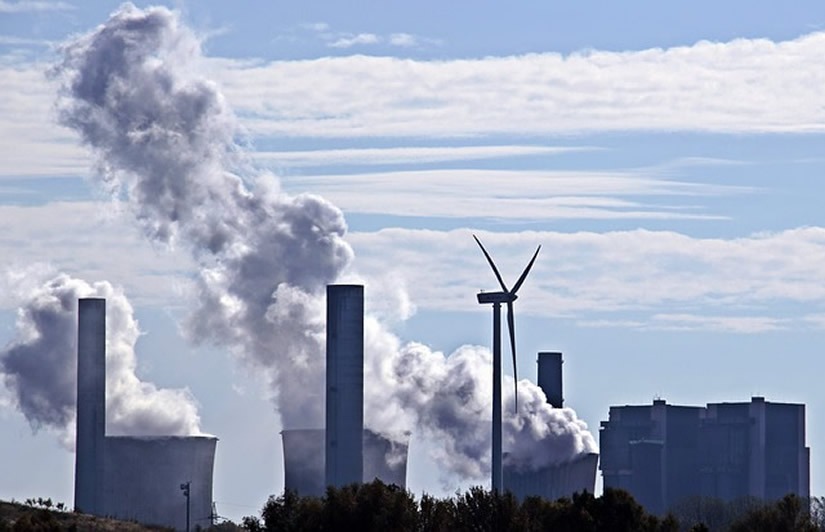By Gemma Ware, The Conversation and Daniel Merino, The Conversation
A new barrier to climate action is opening up in an obscure and secretive part of international trade law, which fossil fuel investors are using to sue countries if policy decisions go against them.
In this episode of The Conversation Weekly podcast, we speak to experts about the investor-state dispute settlement (ISDS) mechanism and how it works. Many are worried that these clauses in international trade deals could jeopardise global efforts to save the climate – costing countries billions of dollars in the process.
ISDS clauses were first introduced into international trade agreements in the post-colonial period. Most of these treaties were between a developed and a developing country. “It was really intended in the first instance to protect the interests of multinational companies from the global north when they were operating in these newly decolonised parts of the world,” explains Kyla Tienhaara, an expert in ISDS and environmental governance at Queen’s University in Ontario, Canada.
Yet Tienhaara says the use of ISDS has “morphed beyond all recognition” of the treaties’ original intentions, due to what she calls “creative lawyering” and the fact the system is stacked in favour of investors and against governments.
A looming concern is the chilling effect these clauses could have on countries’ decisions to phase out fossil fuels or take other action to protect the environment if investors decide to sue for compensation. In April, a summary report by the UN’s Intergovernmental Panel on Climate Change singled out ISDS clauses saying that they may “limit countries’ ability to adopt trade-related climate policies” and stick to their commitments under the 2015 Paris agreement.
In a recent study, Tienhaara and her colleagues estimated that countries could face up to US$340 billion in financial and legal risk from cancelling fossil fuel projects covered by ISDS clauses.
Some countries are more vulnerable than others because of the nature of the contracts they’ve entered into. Mozambique, with its large gas and coal reserves, is particularly so, explains Lea Di Salvatore, a PhD candidate at Nottingham University in the UK.
She analysed 29 of the country’s mega-projects for gas, coal and hydrocarbons and found that the vast majority are covered by ISDS clauses. This means that “the company can directly go and initiate an arbitration against Mozambique”, she says, if it feels a government policy has negatively affected its investment.
We hear what it’s like inside one of these arbitration rooms from Emilia Onyema, a professor of international commercial law at SOAS, University of London in the UK. “It’s a private process,” she explains. “The parties determine who the arbitrator is. They appoint the arbitrator. They pay the arbitrator. So they have more powers over the process than they would have in litigation.”
And we tell the story of one ISDS case launched against Italy by the British oil company, Rockhopper Exploration. In 2016, Italy banned oil drilling 12 nautical miles off its coast, which blocked Rockhopper’s exploration of the offshore Ombrina Mare field in the Adriatic Sea. Maria-Rita D’Orsogna, a US-based mathematician and leading campaigner against oil exploration in Abruzzo, explains what was at stake and what happened next.
Listen to the whole episode on The Conversation Weekly to find out about the fight back against ISDS, including moves to reform a big international trade treaty covering the fossil fuel industry and what countries are doing to limit their risk from ISDS climate arbitration.
This episode was produced by Gemma Ware and Mend Mariwany, with sound design by Eloise Stevens. The executive producer was Gemma Ware. Our theme music is by Neeta Sarl.
You can find us on Twitter @TC_Audio, on Instagram at theconversationdotcom or via email. You can also sign up to The Conversation’s free daily email here. A transcript of this episode will be available soon.
You can listen to “The Conversation Weekly” via any of the apps listed above, download it directly via our RSS feed, or find out how else to listen here.![]()
About the Author:
Gemma Ware, Editor and Co-Host, The Conversation Weekly Podcast, The Conversation and Daniel Merino, Assistant Science Editor & Co-Host of The Conversation Weekly Podcast, The Conversation
This article is republished from The Conversation under a Creative Commons license. Read the original article.
